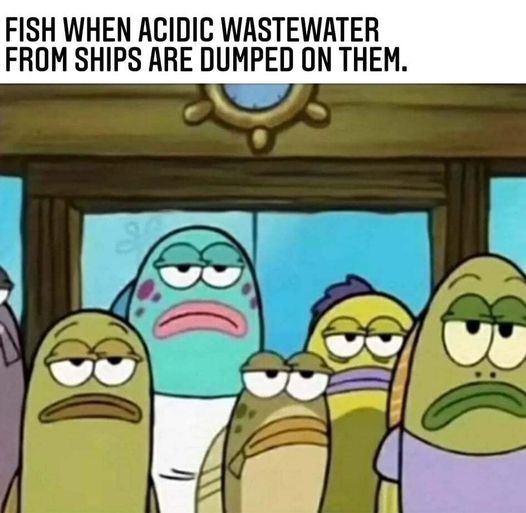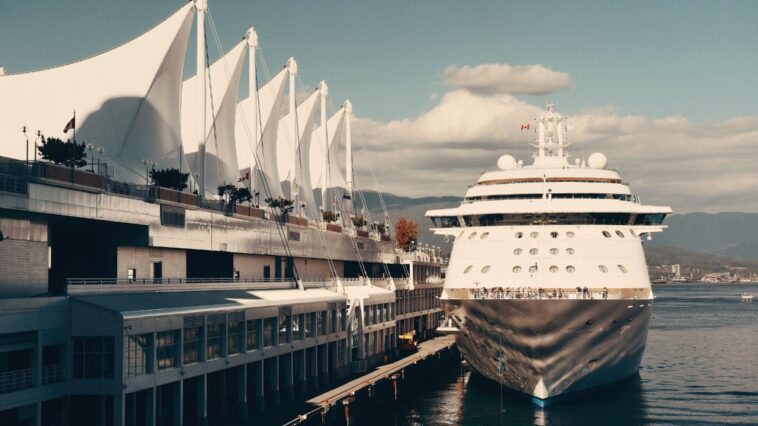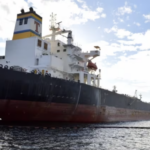The cruise ship industry had a record year in BC this past season, creating tourism jobs and spin-off revenue. But critics say other coastal jobs are threatened by its pollution–and now a formal complaint has been filed with the environmental arm of North America’s free trade agreement.
The complaint to the Commission for Environmental Cooperation charges that Canada fails to follow its own rules on preventing marine pollution from cruise ships, especially billions of litres of toxic scrubber washwater. It calls on Canada to match stricter pollution regulations across the border in the US.

“Ocean dumping from vessels comes primarily from cruise ships, and the industry on Canada’s West Coast has exploded over the last decade.”
Stand.earth
It’s not the first time federal action on the cruise industry has been demanded. Others calling for stronger environmental regulation include the Union of BC Municipalities, which passed a resolution earlier this year; a petition signed by 50,000 people; and Courtenay-Alberni MP Gord Johns, who called cruise ship discharge “harmful to human health, aquatic organisms, and coastal ecosystems.”
Stand.earth, which filed the formal complaint with the commission on Oct. 30, has compared waste discharge from ships to “aquatic clearcutting” because it destroys kelp forests, the nurseries for many commercially important fisheries.
“Ocean dumping from vessels comes primarily from cruise ships, and the industry on Canada’s West Coast has exploded over the last decade,” said Stand.earth in a statement.” It cited 2019 data that suggested 32 billion litres of sewage, greywater, and acidic fossil fuel combustion waste from scrubbers was dumped along the BC coast by cruise vessels that year alone.
“As more passengers arrive on bigger ships, pollution and stress on communities must be addressed,” said the organization.
Stand.earth
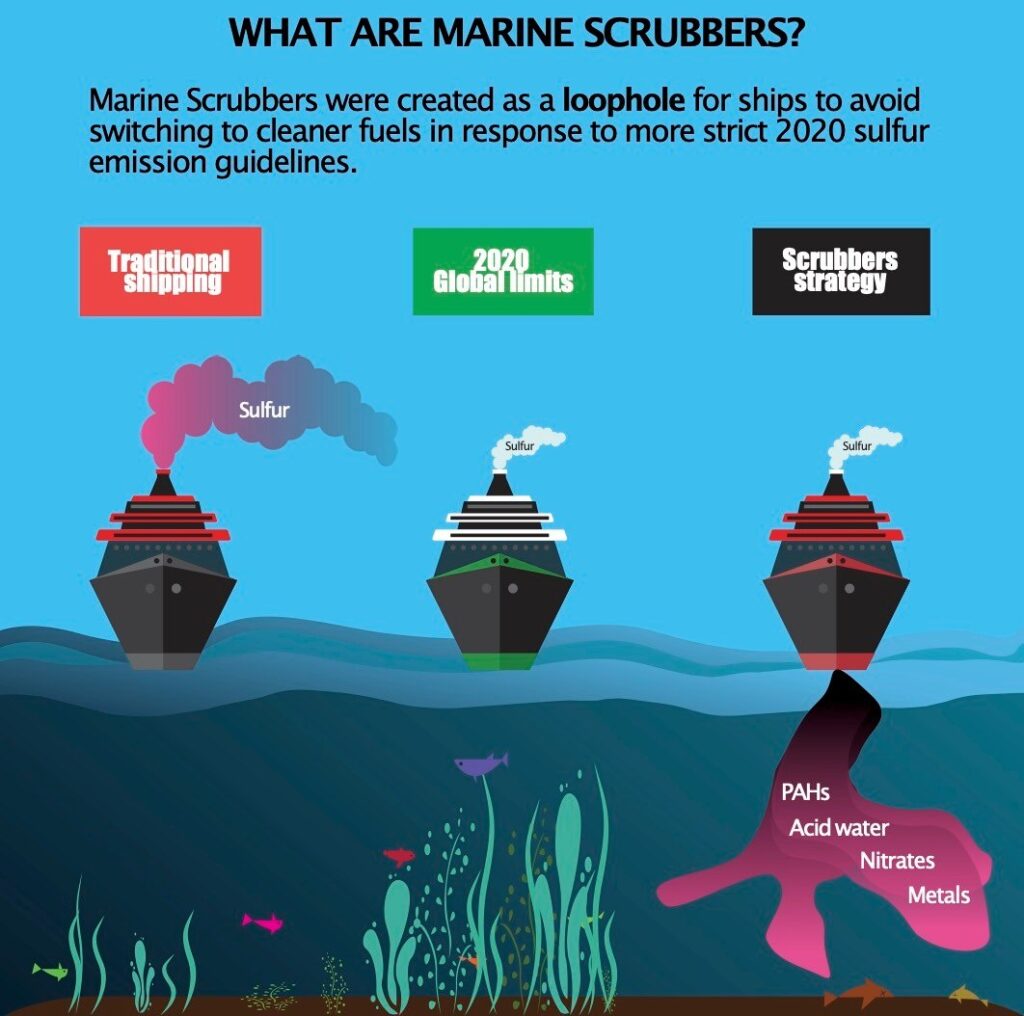
The organization acknowledged that earlier this year, Transport Canada announced voluntary measures in which the industry committed to reducing sewage and greywater, but said that measure is “leaving oceans and coastal communities to face major threats from the remaining 30 billion (more than 90 percent) of waste streams.”
“As more passengers arrive on bigger ships, pollution and stress on communities must be addressed,” said the organization.
Cruise ships and other large vessels dump sewage, grey water, and washwater from open-loop scrubbers used to clean the exhaust fumes of their massive engines, which run on low-grade fuel. The scrubber systems, required under federal regulations, suck in seawater, spray it into the ship’s exhaust, and discharge the resulting warm waste, contaminated with heavy metals and acids, overboard.
The scrubbers effectively reduce airborne emissions. But, as the World Wildlife Fund explains, they “also cause acidification and pollution in the marine environment … They don’t eliminate air pollution – they just transform it into water pollution.”
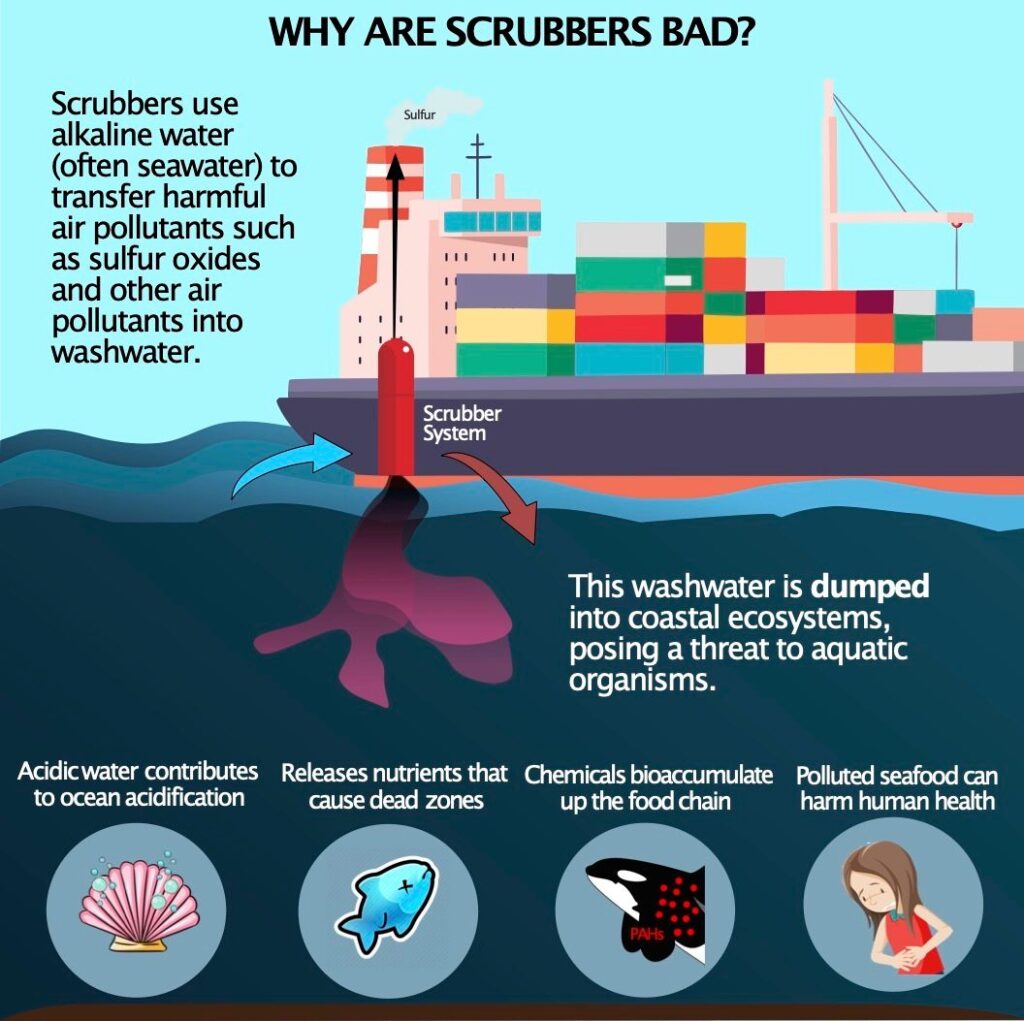
Last year, Transport Canada said in an email, reported by West Coast Now, that the government “recognizes that scrubber washwater discharges are a concern” and said “engagement with industry and interested partners” would begin within weeks.
In a spring update, the department repeated that “discharges of scrubber washwater are a concern,” and said the federal government would work with the marine transportation industry” to keep Canada’s oceans and marine environment clean.”
The spring statement added that the issue is “complex” and said Transport Canada is working with the International Maritime Organization “to evaluate and develop harmonized rules and guidance on the discharge of scrubber washwater in the aquatic environment.”
In an update emailed on Nov. 2 to West Coast Now, Transport Canada said “enhanced mandatory environmental measures to address discharges of greywater and sewage from cruise ships” have been in place since June 23, and it is working to make those measures permanent.
However, there was no change regarding scrubbers, only that the department will work with industry “and other interested partners to develop a path forward to address the issue of washwater discharges.”
